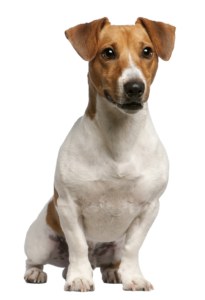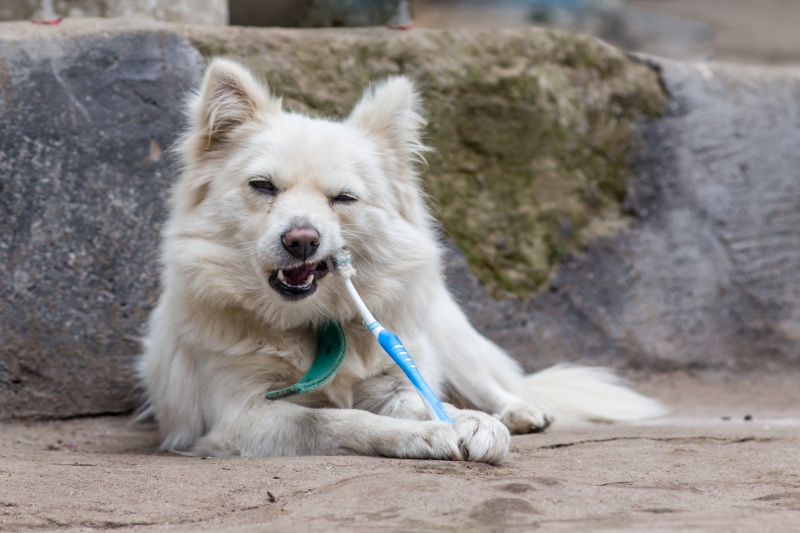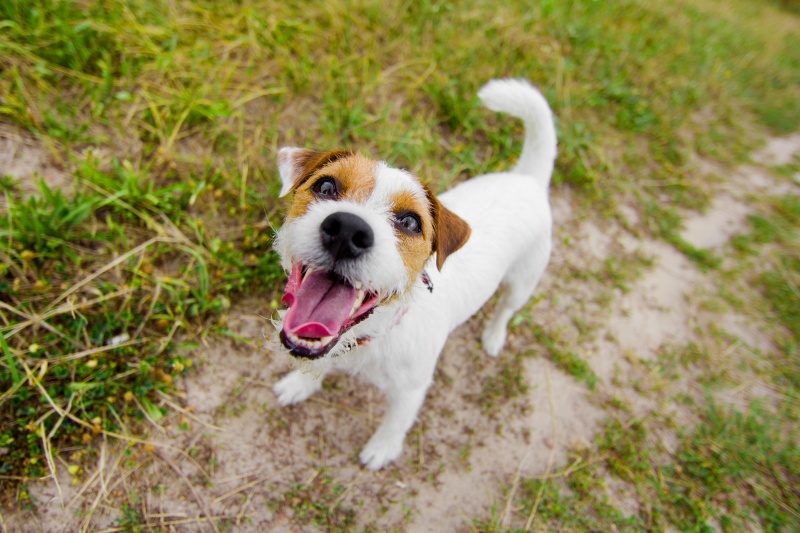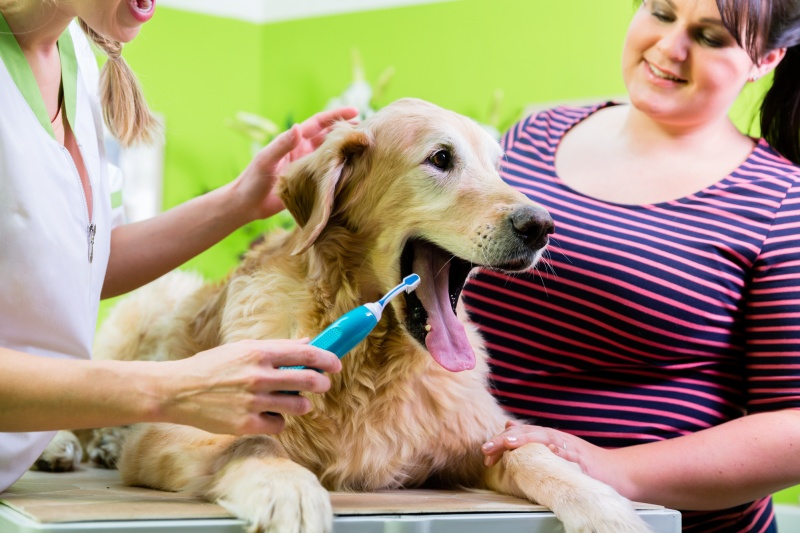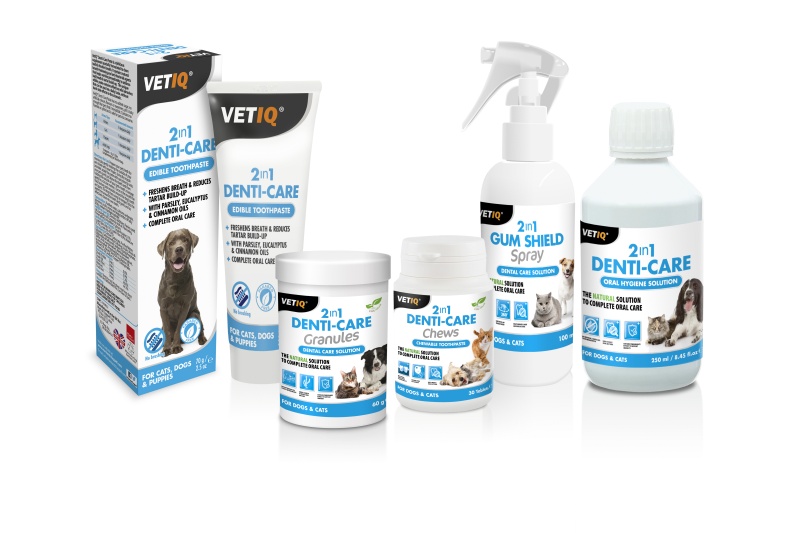We all love our pooches very much, but let’s be honest – their bad dog breath can really stink!
Bad breath is a very common problem in dogs, and while dog owners generally take good care of their furry friends, canine oral hygiene is sometimes overlooked. Even if your dog is generally well-groomed, you’ve probably noticed their breath is bad, and in most cases, stinky pooch breath is a sign of poor oral hygiene.
But it’s never too late to fix this problem and improve your dog’s bad breath. This is particularly important if your dog’s breed is prone to dental diseases or your dog has a history of dental problems.
Taking steps at an early stage can prevent various problems that are linked to poor oral health in dogs, such as halitosis, tooth loss, painful ulcers, tartar, and gum disease.
In this article, we focus on tips to improve bad dog breath and to generally improve your dog’s oral hygiene – something every member of the family will appreciate!
Tips to improve bad dog breath
There are several dog-friendly, pragmatic steps you can take to tackle the issue of your dog’s stinky breath:
Brush your dog’s teeth
Brushing teeth is the cornerstone of dog oral hygiene, and it’s important for freshening up dog breath. Try to brush your dog’s teeth every other day, i.e. two or three days a week. Of course, you can do it every day if you’re one of the lucky owners and your dog actually enjoys it!
Your dog needs to have its teeth brushed to improve its breath while also preventing infections, periodontal disease, and tooth loss.
For many dog owners, the biggest concern is how to brush their dog’s teeth successfully without them hating every part of the process!
When brushing a dog’s teeth, make sure to
- Use canine toothpaste because human toothpaste usually contains ingredients (e.g. xylitol) that are toxic to dogs
- Use a toothbrush created specifically for dogs, but if you have a large breed, a human toothbrush will suffice (but if in doubt, ask your vet!)
- Brush the dog’s teeth away from gums, not toward them, to get the food particles (and bacteria) out
- Rinsing toothpaste isn’t necessary, which is good because some dogs don’t allow it
Give your dog dental sticks and chewy toys
Dogs love their dental sticks and chewy toys, and here’s a great reason to treat them – they can improve dog oral hygiene and thereby help manage bad breath.
You’ve probably noticed chew toys have a gritty texture, and there’s a great reason behind it; when the dog plays with these toys, they scratch off plaque residue and prevent the buildup of tartar.
Chewable treats can do the same, i.e. they decrease the accumulation of tartar while forming a protective layer on the teeth’ surface. As a result, it’s more difficult for bacteria to stick and multiply.
Both toys and sticks are particularly useful for cleaning areas that are hard to reach. Just make sure to get products that are specifically created for dogs and then sit back while your pooch unknowingly does the hard work for you!
Bring your dog for regular teeth cleanings
Although proper oral hygiene at home is crucial, you still need to take your dog to the vet for regular dental cleanings or dental prophylaxis.
The reason is simple; plaque and tartar are bound to accumulate over time the same way they do on your teeth. That’s why your dog needs teeth cleaning, just like you do.
To clean a dog’s teeth properly, the vet will need to use general anaesthesia. The whole process is safe, and dental cleaning itself takes about 15 to 30 minutes.
Your vet will recommend how often the dog needs teeth cleaning based on their dental health, but hopefully, as long as you’re using poochpaste and dental sticks, your visits to the vet should be fairly infrequent.
Give them water additives and dental powder
Dental water additives are tasteless and you simply add them to your dog’s drinking water. Daily use can help prevent the growth of bacteria that causes plaque and bad breath. Dental water additives also help to support teeth and gums without brushing.
Then there is also dental powder, which is a nutritional supplement for dogs. You add it to wet food or sprinkle it over dry food once a day. It works in the same way as water additives – it fights against bad breath, bacteria, plaque, and tartar.
It is worth noting, however, that water additives and dental powder aren’t replacements for proper dog oral hygiene – regular toothbrushing, dental sticks and occasional visits to the vet are still highly recommended.
Improve your dog’s oral hygiene with VetIQ Denti-Care
It’s no secret to say that dogs are prone to dental problems, including bad breath.
That’s why regular dog oral hygiene is crucial to protecting your pooch’s oral health. By brushing a dog’s teeth regularly and giving them chewy toys or dental sticks, it’s easier to eliminate bad breath and prevent dental problems and gum disease.
But canine oral hygiene doesn’t just depend on things you do but also on the products you use in the process. The products you buy should offer maximum care and protection to the dog’s gums and teeth, and that’s where VetIQ Denti-Care steps in.
VetIQ Denti-Care is a line of products created specifically to support the dental health of your beloved pet. What makes these products stand out is that they rely on a natural active ingredient to deliver their benefits. That ingredient, pomegranate extract, can reduce the formation of plaque.
Using VetIQ Denti-Care is easy. Since it’s a water additive, you just add a recommended amount of the liquid to the water bowl, and that’s it. Besides water additives, the VetIQ Denti-Care line also includes chewable treats, canine toothpaste, and granules.
So don’t waste another moment! If your dog’s breath is becoming unbearable to friends and family alike, see for yourself what our Denti-Care range can do for your pooch. Don’t forget to also check out our blog for more pet-related advice!

